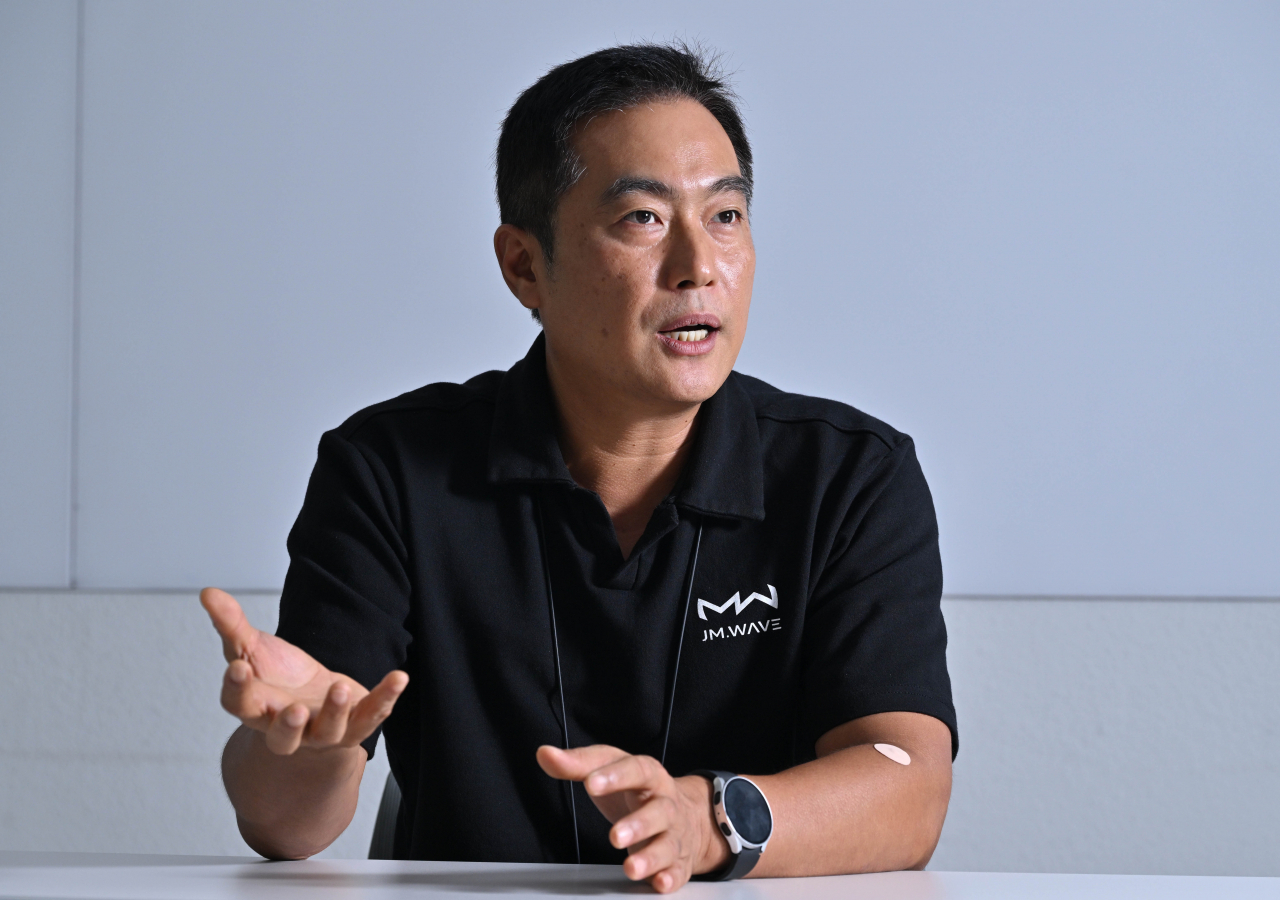 |
JM.Wave CEO Park Jeong-min speaks during an interview with The Korea Herald at Front1 in Mapo, western Seoul, on Sept. 27. (Im Se-jun/The Korea Herald) |
As global carmakers rush to make the costly transition to carbon-free electric vehicles, Park Jeong-min, CEO of the Seoul-based startup JM.Wave, asks, “What about the remaining internal combustion engine cars?”
The 7-year-old company holds the "repowering technology" that converts vehicles with internal combustion engines into EVs. It is also the first to get regulatory sandbox approval from the Ministry of Land, Infrastructure and Transport after passing a safety verification test last year.
“We have been developing the technology with the belief that converting the remaining internal combustion engine vehicles to EVs is the true climate technology," Park told The Korea Herald in a recent interview at Front1 in Mapo, western Seoul.
Currently, they prioritize the highest-polluting vehicles on the road, such as trucks. The company can convert a 1-ton diesel-powered truck into an EV in just three days.
According to the Korea Automotive Technology Institute, if 56,000 diesel vehicles older than 10 years are converted to EVs annually, carbon emissions of 610,000 metric tons can be reduced by 2030.
Repowering is also far more economical than purchasing a new EV, the CEO said. JM.Wave’s technology benefits from the government’s EV subsidies. Though converting a truck to an EV can cost around 20 million won ($14,500), the actual cost for the driver is 5 million won.
“It means the cost is just one-sixth of purchasing a new EV. It also takes only three days when carmakers make an EV for almost seven months,” Park said.
Buoyed by its successful launch at home, the company seeks to expand its presence globally and is looking for opportunities to diversify its business portfolio.
JM.Wave recently signed an agreement with the Indonesian government to help with the electric conversion of the nation’s ubiquitous motorcycles. In Cambodia, JM.Wave is also in talks with a local company to develop 1-ton diesel-powered trucks and electrified tuk-tuks, the beloved auto rickshaws in Southeast Asia.
To spur its global expansion, JM.Wave is also searching for global tech talent, not just for research and development but also for strategic development, especially those who know the soaring Southeast Asian market.
“Like Apple in the tech industry, we want to become an unprecedented player in Korea's 58-year automobile history,” Park said.
JM.Wave succeeded in securing a 3 billion won Series A round of investment in February with Bright Energy Partners, Astone ventures and Kiwoom Asset Management participating. The startup plans to receive a bridge round worth 1 billion won this month as well as Series B funding worth 15 billion won by the end of next year.





![[Herald Interview] How Gopizza got big in India](http://res.heraldm.com/phpwas/restmb_idxmake.php?idx=644&simg=/content/image/2024/11/20/20241120050057_0.jpg)

